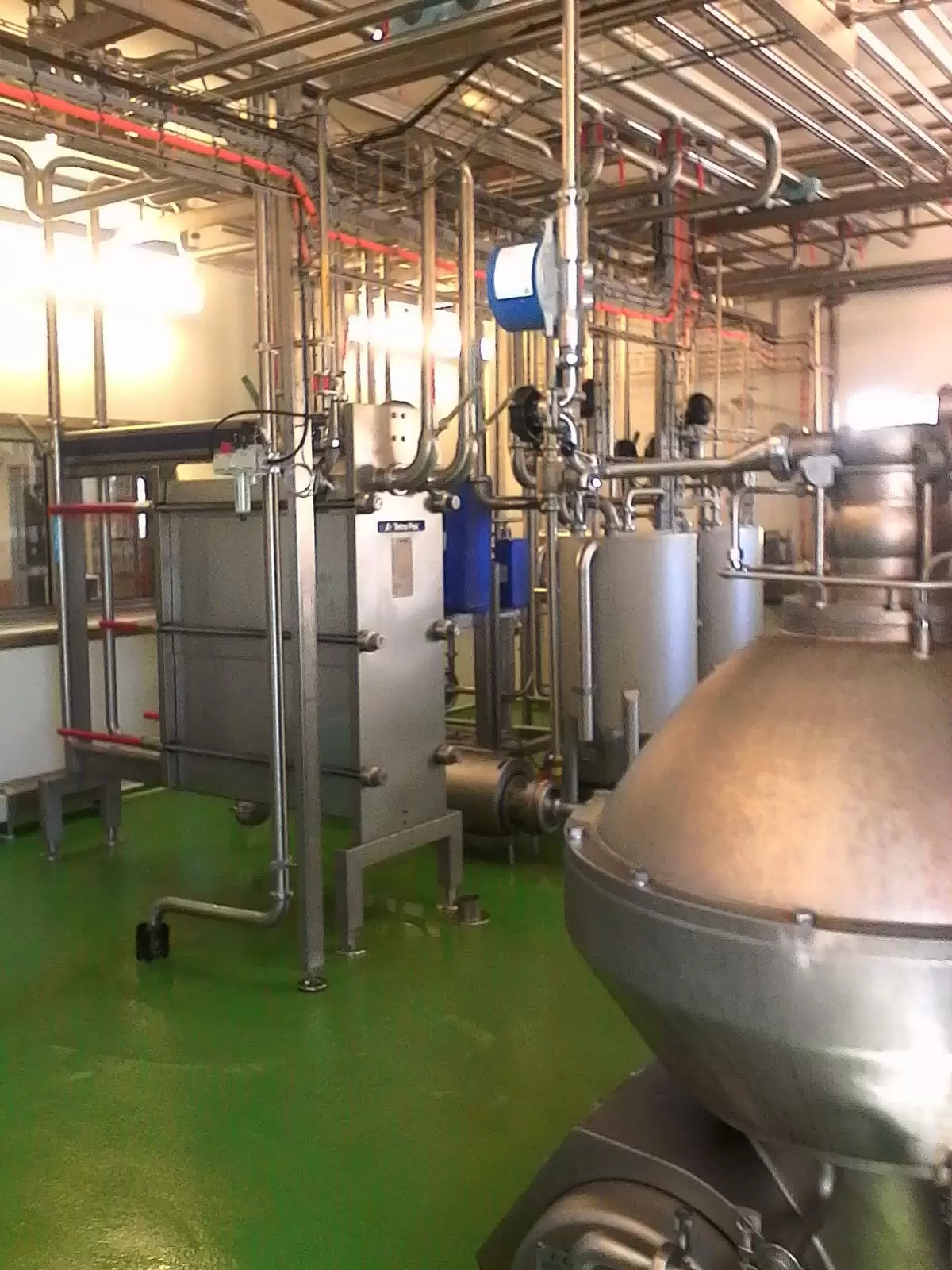A collective initiative for the management of farm-produced whey
Project details
- Main leader : Lactoservice
- Type of initiative : Initiative involving different people (collective, etc.)
- Périmètre : Zone AOP St Nectaire
- Localisation : 63610 Besse
- Date de début : août 2016
Economy circular topics
- Industrial and regional ecology
- Extending useful service life
- Responsible consumption
- Functional service economy
- Recycling
- Eco-design
- Sustainable procurement
Whey processing is a major issue for producers in St-Nectaire. This is because they must find a use for this substance which is produced in large quantities during the manufacture of cheese (only 20% of the milk becomes St-Nectaire cheese)
The existing solutions in the protected origin (AOP) area did not satisfactorily meet the specific needs of farm producers. To make up for this, the Saint-Nectaire interprofessional syndicate has planned to organise a collection and recycling system for farm whey. The solution is used to turn it into powder and cream sold to the food industry.
This project led to the creation of the company Lactoservice, a collection system and a pre-processing station for farm whey. The latter is backed by Bonilait, with which a partnership has been set up and which takes care of the next stage in the recovery process: preconcentration.
Qualitative benefits
Lactoservice is the first collective initiative for managing farm-produced whey in France.
Farmer's whey is very acid. It is not pasteurized and has health risks if mismanaged. Lactoservice's solution takes these challenges into account. It is safe from a sanitary standpoint and avoids polluting practices such as spreading.
While whey can be an embarrassing form of waste if no solution is used, when processed it regains its status as a good quality raw material for the agri-food sector (for the manufacture of infant powder, chocolate, ready-made meals, food supplements for sportsmen and women, etc.). For producers, Lactoservice’s solution is practical, inexpensive and clear.
Recovered whey replaces or complements other solutions:
- Feed for cattle or pig farming. Traditionally, producers had pigs which they fed with whey, but this is becoming increasingly rare and pig farming is not sufficiently developed in the region to make it viable.
- Recovery by methanisation. This solution is still relatively undeveloped.
- Mixing milk whey with pasteurized whey. This solution was no longer feasible because of the health risks and the amounts to be managed. The two collectors that had previously collected farm whey were no longer able to meet demand.
- Spreading This solution pollutes because of the acidity of the whey, and is burdensome for farmers: whey clogs up ditches, acidifies fields, and spreading requires extra hours of work.
Stages of the initiative
2014: the St. Nectaire interprofessional syndicate (Interprofession du Saint-Nectaire - ISN) planned to organize collection and recovery of farm whey, adapted to local imperatives. A technical and economic feasibility study was then carried out
1 August 2016: first collection processed in Tauves (Puy de Dôme)
Levers:
- When the activity began the price of whey powder was low but its tendency to increase during this period was encouraging (for processing not to cost producers anything the price must be at least €700).
- Producers commit themselves over 5 years. This makes it possible to stabilize the activity in spite of the fluctuating price of whey powder.
- Bonilait has been of great help in providing its technical know-how for setting up the pre-processing plant.
-
- The solution concerns many people working in the AOP area (Bonilait, log-standing collectors, numerous producers). Their shared interests have been a driving force behind this collective regional partnership.
-
Obstacles:
- Significant amount of investment and time lag between payments and receiving certain grants.
- Lactoservice has no influence on the price of whey powder. At times when this drops the value of sales does not cover the cost of collection.
Areas of activity
- Agriculture
- Food
Resources
- Food
Technical resources
- Collection carried out every two days by two subcontracting companies
- Creation of a pre-processing plant for reception, filtering, skimming and pasteurization of defatted whey, and pasteurization and storage of cream.
- The pre-processing plant is connected to Bonilait, which is responsible for preconcentration. The material passes directly from one unit to another without any logistical requirements.
Financers
- Région Auvergne-Rhône-Alpes
- Département du Puy de Dôme
- Union Européenne
FEADER
